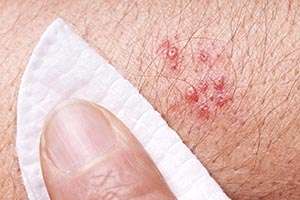Use of biologic therapies for inflammatory diseases does not appear to increase risk of shingles

Patients with rheumatoid arthritis (RA) who initiated use of anti-tumor necrosis factor therapies were not at a higher risk of developing herpes zoster (shingles), compared with patients who initiated nonbiologic treatment regimens, according to research from the University of Alabama at Birmingham (UAB) and the Oregon Health and Science University. The findings appeared in the March 6, 2013, issue of the Journal of the American Medical Association (JAMA).
"Patients with rheumatoid arthritis have a disproportionately higher risk of herpes zoster, as much as two fold," said Jeffrey Curtis, M.D., senior author of the study and associate professor in the division of Clinical Immunology and Rheumatology in UAB's School of Medicine. "The contribution of widely used biologic immunosuppressive therapy to this increased risk is not well understood. These therapies, including tumor necrosis factor (TNF) antagonists, are commonly used to treat RA and a variety of other immune-mediated inflammatory diseases, and they have clearly been associated with an increased risk of tuberculosis and other opportunistic infections."
Curtis, along with first author Kevin L. Winthrop, M.D., of the Oregon Health and Science University, and colleagues, conducted a study to determine whether initiation of anti-TNF therapy compared with non-biologic comparators is associated with increased herpes zoster risk. The researchers identified new users of anti-TNF therapy among groups of patients with either RA, inflammatory bowel disease, psoriasis, psoriatic arthritis, or ankylosing spondylitis from 1998 through 2007 within a large U.S. multi-institutional collaboration.
The authors then compared herpes zoster incidence between 33,324 new anti-TNF users and 25,742 patients initiating nonbiologic disease-modifying antirheumatic drugs (DMARDs) within each inflammatory disease cohort.
Across all disease groups, there were 310 herpes zoster cases among anti-TNF and 160 among nonbiologic DMARD users. For patients with RA, the researchers found that adjusted incidence rates were similar between anti-TNF and nonbiologic DMARD initiators and comparable between all three anti-TNF therapies studied. Baseline use of corticosteroids of 10 mg/d or greater among all disease indications was associated with elevated risk compared with no baseline use.
After adjustment for various factors, no significant difference in herpes zoster rates was observed within any disease indication between patients initiating anti-TNF therapy and those initiating new DMARD regimens.
"Among patients with RA and other select inflammatory diseases, those who initiated anti-TNF therapies were not at higher risk of herpes zoster compared with patients who initiated nonbiologic treatment regimens," said Curtis.
Within the RA group, herpes zoster risk was associated with increasing age, female sex, overall health status and higher-dose corticosteroid use.















